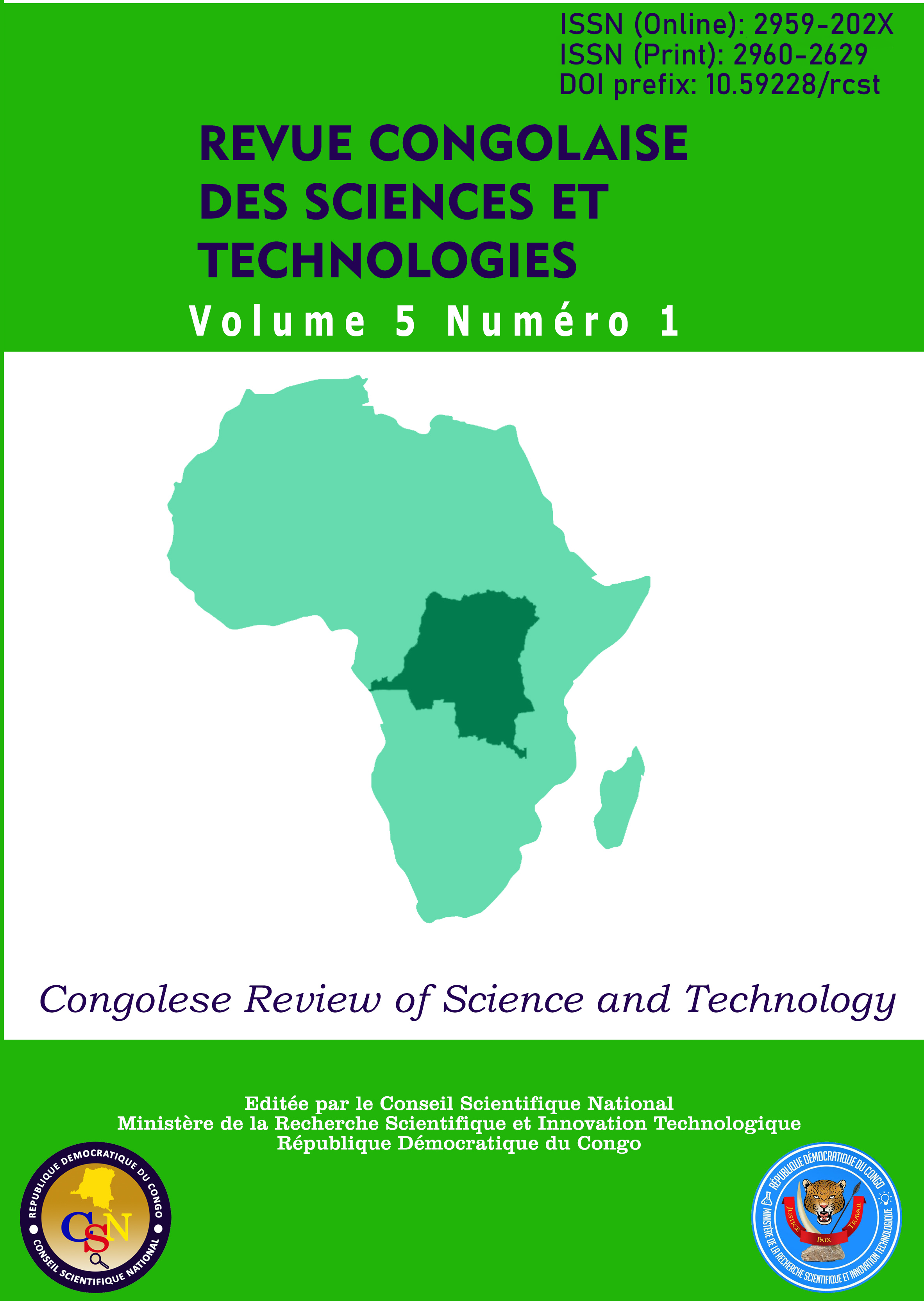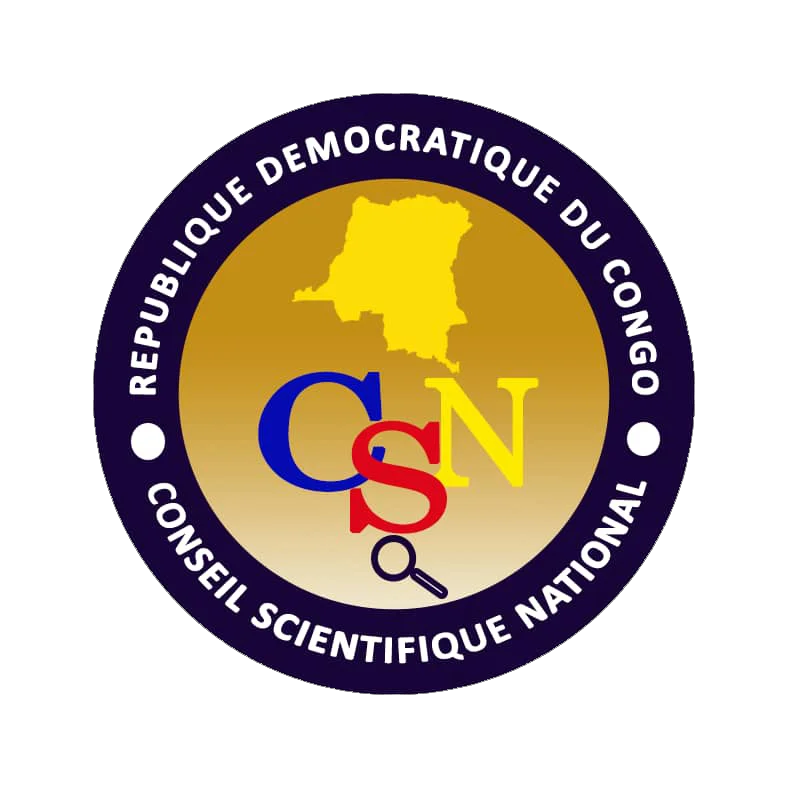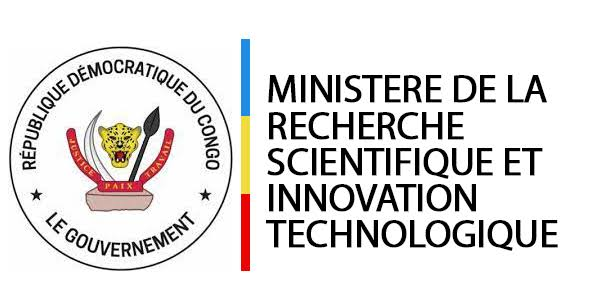
About the Journal
The aim of the Revue Congolaise des Sciences et Technologies is to bring together, for the scientific world, the results of research carried out by various institutions of higher education, universities and public and private research centers throughout the Democratic Republic of the Congo, as well as throughout the world. It is therefore a platform for scientific exchange for researchers from all over the world. It is multidisciplinary in nature, and calls on all researchers to contribute to the sustainable development of humanity in general, and the Democratic Republic of Congo in particular. For future generations, this Journal will serve as a reference for the progress and advancement of science. Through this Journal, the Ministry of Scientific Research and Technological Innovation of the Democratic Republic of the Congo aims to give visibility to research activities and boost the efforts of researchers in the search for ways and means of development and modernity.
Current Issue





